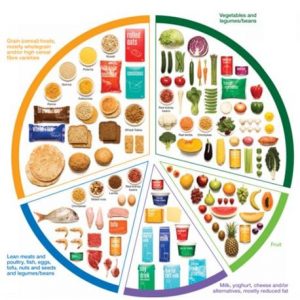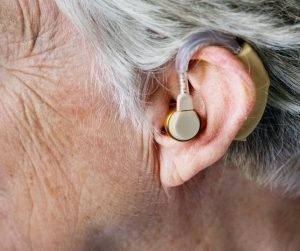
Poor nutrition in older people is a major health problem. It is estimated that 30% of people aged 60 years or older, who live independently, suffer from some degree of malnutrition. These people tend to become sick more often and take longer to recover than those who are well nourished.
Good nutrition is important for optimal health, independence and quality of life. Awareness of any nutrition-related health problems and timely intervention can be a big help in preventing the downward slide that leads to loss of independence and reduced quality of life. Good nutrition improves wound healing. Good nutrition helps to preserve bone mass and maintain muscle strength thus reducing the risk of falls and fractures. Good nutrition improves well being.
As you get older, it’s important to continue choosing healthy foods and enjoying eating as a social activity that you can look forward to.
However, as we get older our lifestyles and appetite can change and this can affect the types and amounts of foods we eat. A decreasing appetite or reduced ability to buy and prepare healthy foods can mean that many older people don’t get enough essential vitamins, mineral and fibre, and this can contribute to general unwellness or exacerbate some chronic illness.
Dietary Guideline 1:
To achieve and maintain a healthy weight, be physically active and choose amounts of nutritious food and drinks to meet your energy needs
- Older people should eat nutritious foods and keep physically active to help maintain muscle strength and a healthy weight.
Achieving and maintaining a healthy weight can help older people keep more active, manage their health problems better and live life more. The best way to do this is to try to follow the recommended number of serves from the five food groups and avoid extra serves and discretionary foods and drinks.
However, we also know that people who are over 65 years often have better health if they carry a little extra weight and have a slightly higher body mass index. Sometimes too, people with chronic health problems can put themselves at risk of malnutrition by restricting what they eat. If you are unsure about the benefits of losing extra weight, talk to your health professional.
Dietary Guideline 2:
Enjoy a wide variety of nutritious foods from these five groups every day
Circumstances, health problems, budgets and eating issues can mean that our range of foods gets smaller as we get older. However, it remains important to eat widely from all the food groups to make sure we get the nutrients we need. Troubleshooting and a few tips can keep a wide variety of foods in our meals and snacks. If your budget is more limited, plan well, use what’s available and buy only what you need. If you’re cooking for one, collect some healthy, but quick and easy ideas and try to organise to eat regularly with friends or family. If nuts, grains and hard fruits and vegetables are a problem for your teeth, go for milled wholegrains, soft cooked and canned fruits and vegetables and nut pastes.
Be careful to follow food safety guidelines, because food borne illnesses can hit older people particularly hard.
Dietary Guideline 3:
Limit intake of foods and drinks containing fat, added salt, added sugars and alcohol
It’s always good to limit saturated fats, added salt, added sugars, alcohol and low fibre choices for good health. However older people are also more likely to be living with a chronic disease and part of their self management might involve careful attention to choosing foods. Sometimes though, limiting fats, added salt and added sugars can mean a person who is at risk of malnutrition, actually eats too few nutrients and kilojoules and can put themselves at risk. For some people it’s not straight forward and they need to talk to their health professional about the benefits and risks.
Older people can also find that they need to eat more high fibre foods and to drink more water to avoid constipation as bowels tend to slow down with age.








